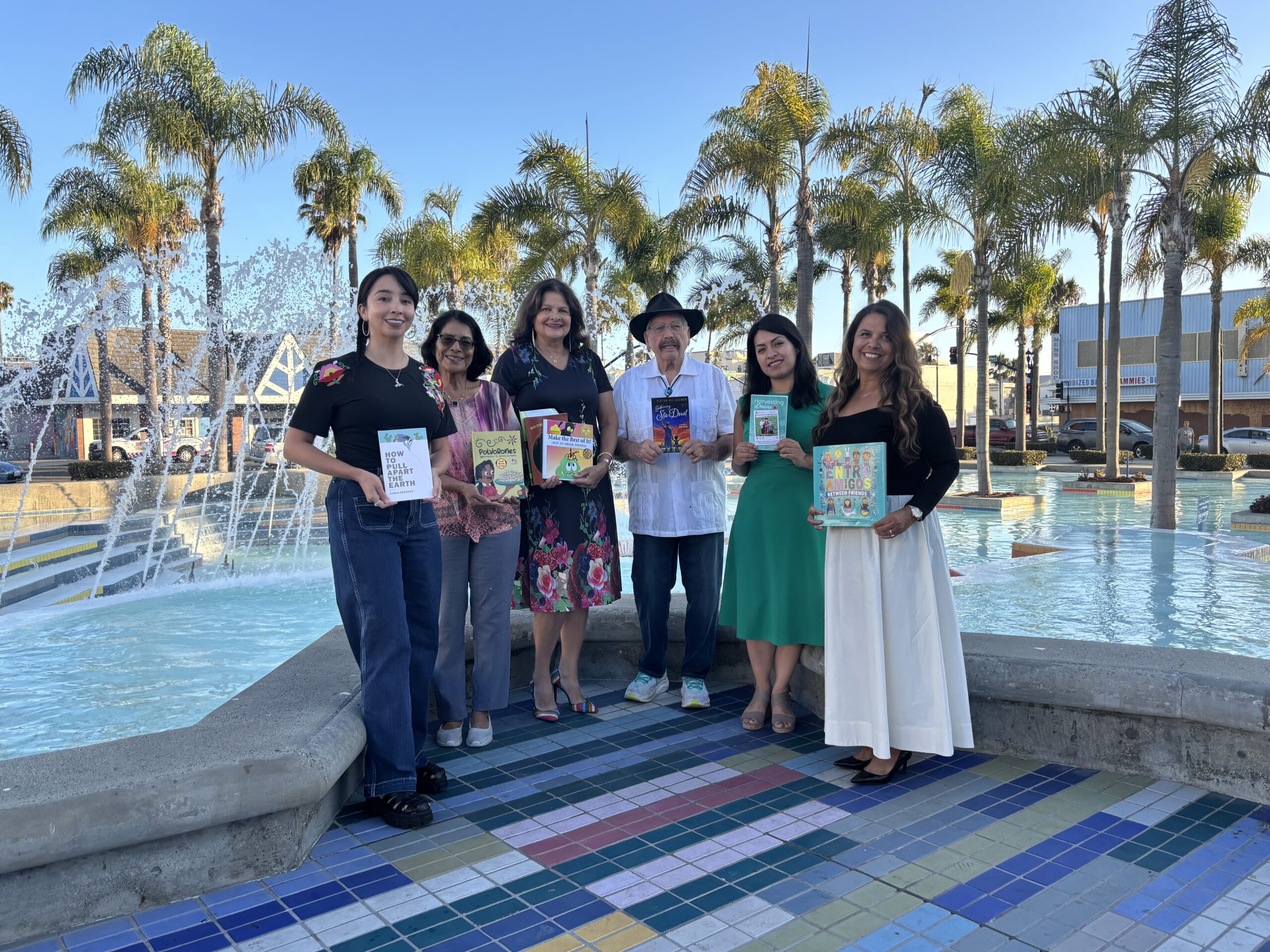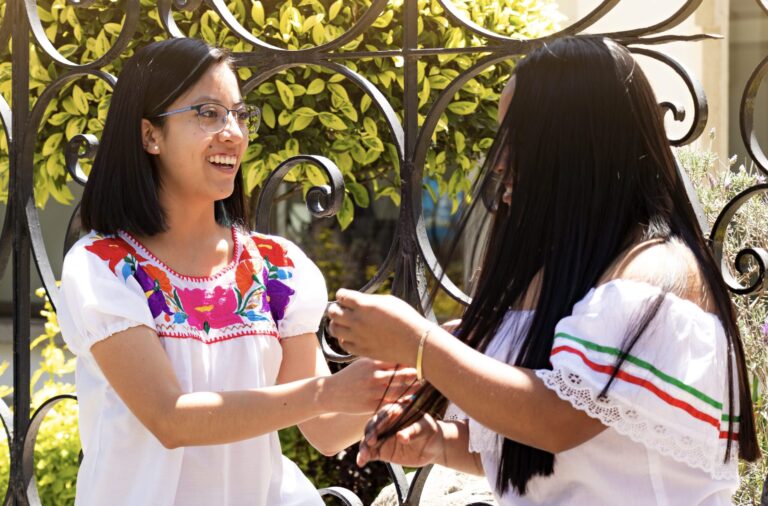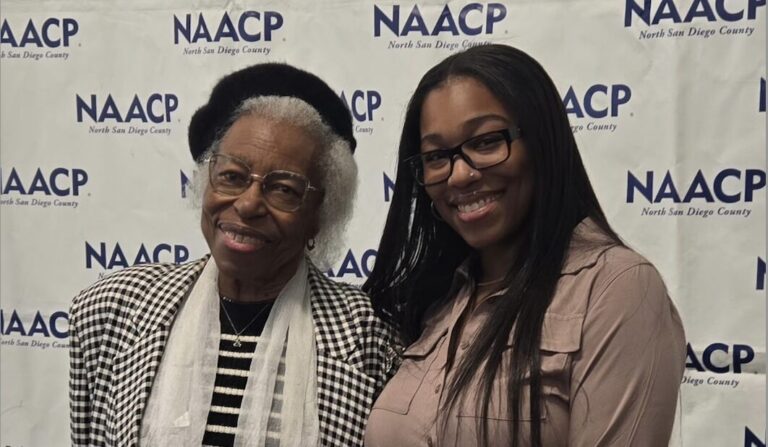By Melanie Slone
The 27th Annual International Latino Book Awards, honoring books by, for, and about Latinos, is happening right here in North County on October 25. MiraCosta College will host the event where authors representing 87 categories take the stage to receive their award. Check out the program in this issue.
North County Informador talked with 9 past Award-winning Authors (AWAs) from the San Diego region about their writing and its impact on others.
Erica Alfaro, Harvesting Dreams
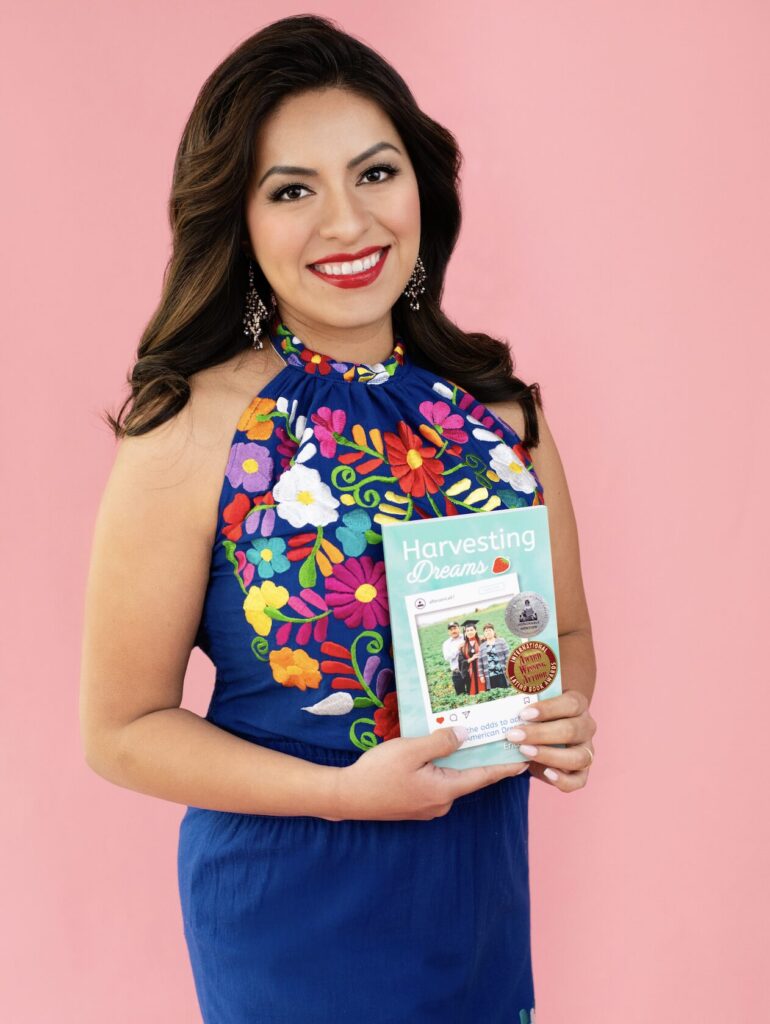
As the daughter of migrant farmworkers who never had the chance to pursue formal education, and as a first-generation college student and teen mom, I often struggled to believe I could achieve big dreams. During my college years—amidst personal challenges—I searched for a book that could give me hope and where I could see myself reflected. But I couldn’t find one. That’s when I made a promise to myself: if I ever accomplished the dream of becoming the first woman in my family to earn a college degree, I would write the book my younger self needed. I wrote it not just for me, but for others in my community facing similar struggles.
It’s essential for people to see themselves represented in books—especially within the Latino community. Although Latinos are the nation’s second largest racial and ethnic group, less than 8% of published authors are Latino. This lack of representation means our stories, struggles, and achievements are often left untold. When a book is written by a Latino/a author, readers can see their lives, values, and identities reflected on the page. Representation matters because it reminds us—and the next generation—that our voices, our experiences, and our dreams truly matter.
If someone had told me that my book would one day sell thousands of copies, I wouldn’t have believed it. It wasn’t until I published my first book that I truly understood the power a story can have to touch lives. Today, my book is taught in schools across the country, and every year I receive hundreds of messages from students and community members who share how it gave them hope and inspired them to dream big.
Drawing from my experiences as an international keynote speaker, award-winning author, and education advocate, a few months ago, I founded Harvesting Dreams, LLC, a personal growth academy. I created a mentorship program to help others in my community share their stories and write their own books. In less than six months, 50 people joined my mentorship program—10 of whom have already published their books.
At its heart, the greatest impact of my work is inspiring others and giving them hope.
Marta Arroyo, Polvorones
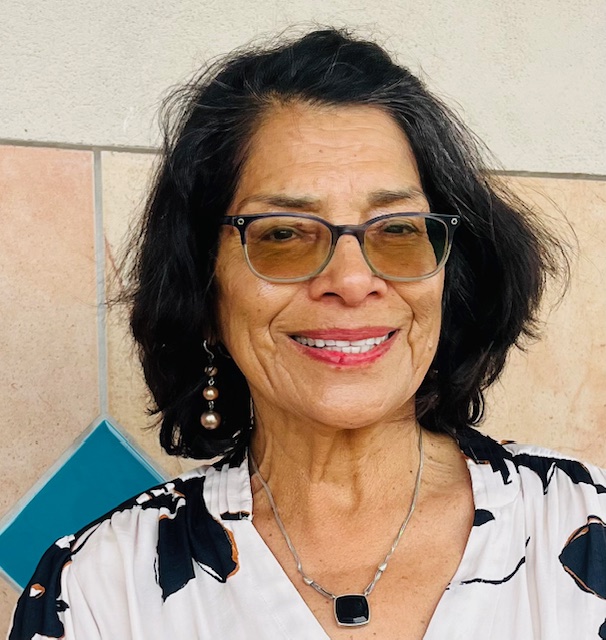
I was first inspired to write because of witnessing my Mamá Concha’s passion for cooking. She loved making good meals daily. On special occasions she prepared delicious tamales! It brought our family together; she also shared tamales with her church friends and neighbors. I wanted to tell the world about my mamá. I gave her a special nickname, Señora Tamales.
I also had my papá Manuel’s daily routine to inspire me. As I was growing up, my daddy put Mexican music, especially mariachi music, on the radio. That’s how I started to think of writing about a little girl named Lupita who went to the neighborhood fiesta, where a mariachi band played. My love for the beautiful sounding instruments led me to write La Fiesta y El Mariachi, my first bilingual children’s book. When I got courage and a positive family response, I proceeded to share my stories with children in schools and libraries
I believe we as a people have desires to feel accepted. Children can relate to their own world at home and school through stories that they find possible in their lives! It’s a beautiful thing, needed thing to see ourselves in a story about our people, our lives.
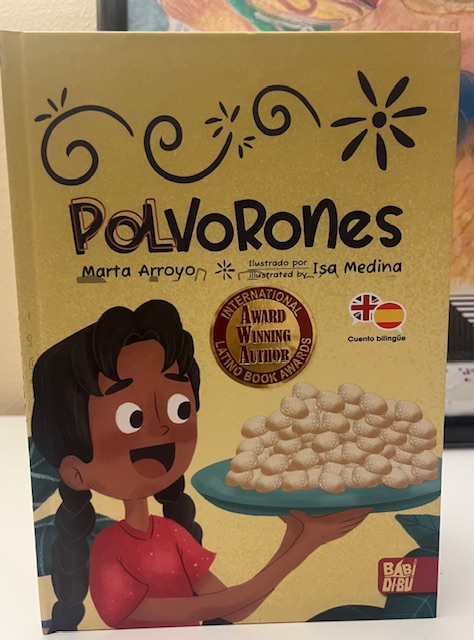
Now more than ever children can check out books in their school library, books that are bilingual and touch on their own lives somehow. What a great motivational possibility for all kids.
My feeling is one of honor, that my writing will trickle down, ever so slowly through time. My youngest sibling, Frank Perez, told me he shares my book, The Story of Señora Tamales, with the farm working communities. He loves this book because he gets to talk about our background and family struggle. He says he gets a great response from people.
The impact my own books have might be small, but across time and along with the thousands of Latino authors with the same intent, to relate to our people’s lives, that impact is mighty. I believe in the beauty of our history and culture, which need to be written about.
Georgette Baker, Make the Best of It! ¡Haz lo mejor posible!
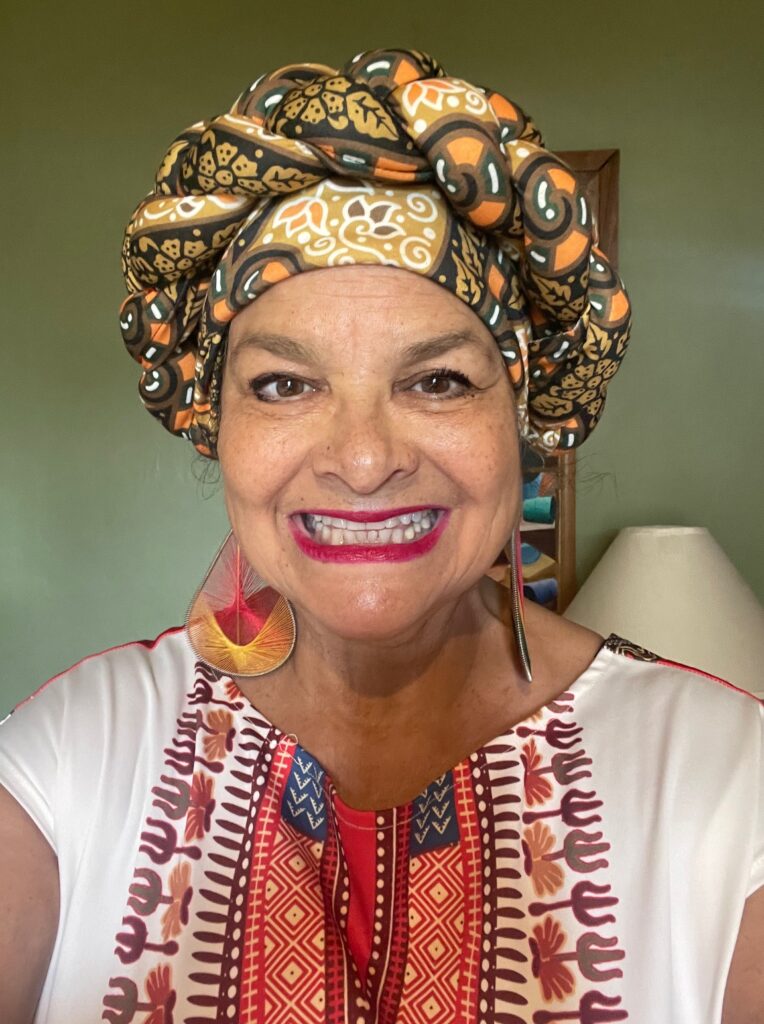
Stories inside me needed to come out, especially stories that offered alternative ways of looking at challenges.
Life presents challenges to all age groups. If a child can learn early how to change their views on things, they have the opportunity to choose happiness over despondency. Children have the opportunity to see solutions that humans usually learn through experience. My books share alternative ideas early for potential greater success in adulthood.”
Karla Cordero, How to Pull Apart the Earth
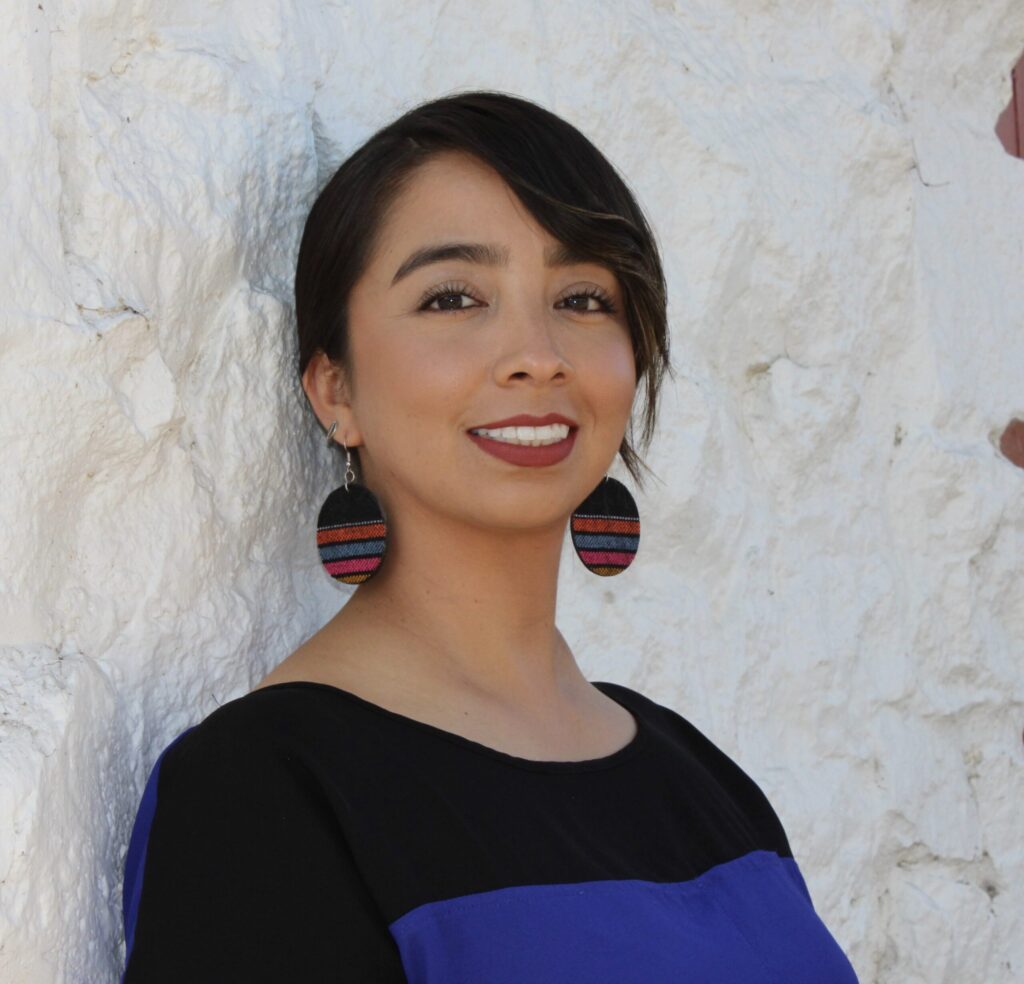
I can’t talk about being an author without first talking about being a writer. For me, writing wasn’t something I became—it was something I inherited. I come from a long line of storytellers: ancestors who were poets, uncles who were master comedians, grandparents who preserved and passed down our family histories with such passion and precision.
My father, in particular, is one of the greatest storytellers I’ve ever witnessed. Since I was a child, I watched him captivate a room with rich detail, heart, tension, and perfectly timed punchlines that left everyone laughing. That was my first master class in storytelling—and the moment I became addicted to telling stories of my own.
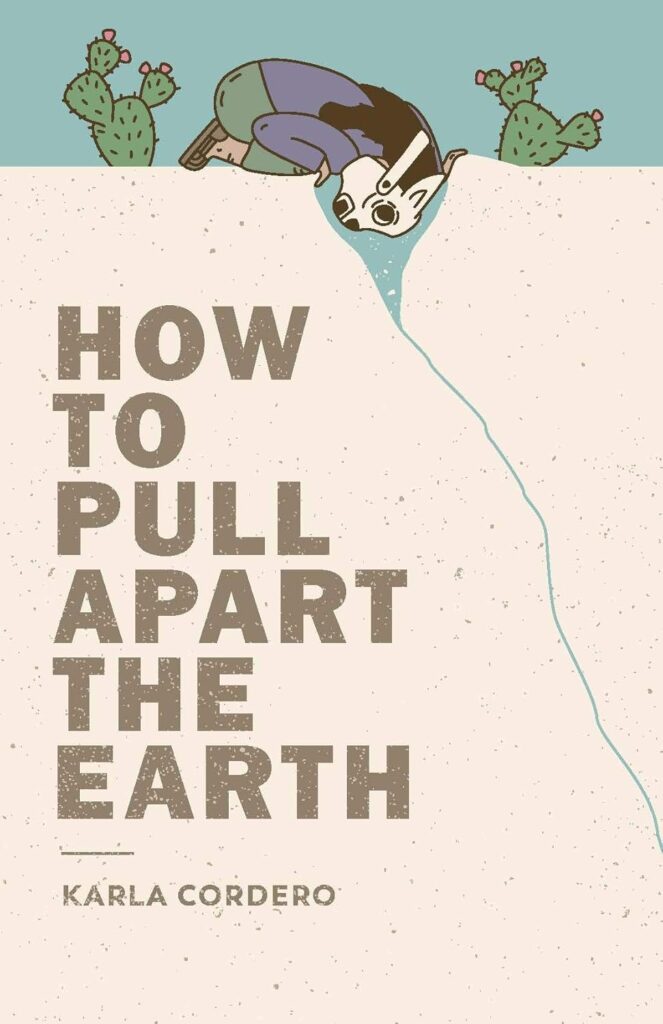
Becoming an author was never the goal. I never imagined myself as a published author. But that began to shift thanks to the encouragement of mentors and community. It started in eighth grade when Mrs. Delira gave me the homework assignment to memorize a poem by Shel Silverstein—and I did. When Professor Sandra Doller encouraged me to pursue an MFA in poetry—and I did. When Marilyn Chin told me to keep writing about my culture—and I did. When Willie Perdomo challenged me to reach for the hardest, most necessary stories—and I did. These were the teachers who saw my potential as an author before I ever did.
Spoken word and competitive poetry also helped me sharpen my voice and craft stories that demanded to be heard. Writing communities like Macondo, CantoMundo and VONA, along with countless mentors, reminded me I wasn’t alone in this work of poetry and social justice. Eventually, it was those same communities who said, “You have a book. You should send it out.” So I did.
And now, here I am—a published author. I carry so much gratitude for the village that raised me, mentored me, and believed in me. They helped me become the writer I am, and the one I continue to grow into every day.
Juliana Hernandez, Entre Amigos/Between Friends
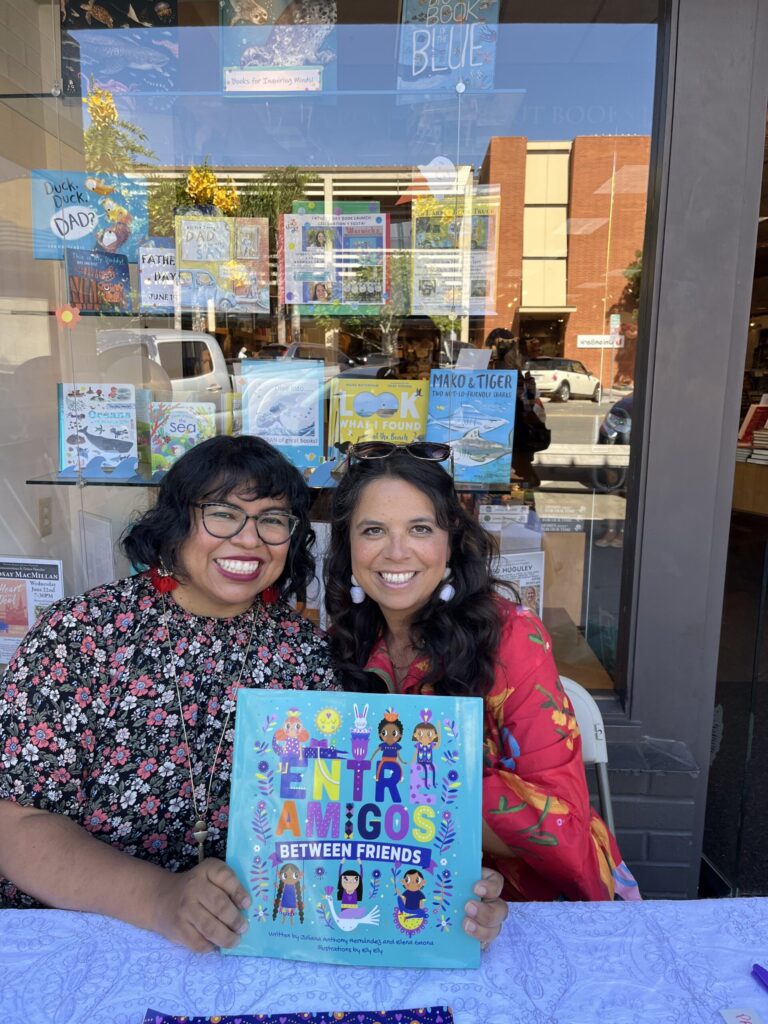
I was a bilingual elementary teacher in very diverse neighborhoods and could never find books that shadowed my community. I always dreamt of writing my own books. I made it come true, years after teaching and becoming a mom.
It’s very important for children to see themselves in books. I grew up with no books representing my culture and struggled as a teacher to find resources. Multicultural children had very few books and I’m happy to see more books with all cultural representation. The United States is a melting pot of many beautiful cultures that must be embraced. The more children see themselves in books, the more they feel seen and confident about themselves and their culture.
I love hearing stories from my students. Children will always be my inspiration to write. I’m their voice now, and they will be the next generation of writers. I empower them to believe in themselves; everyone has a story to tell at any age.
Victor Villaseñor, Gathering Star Dust
A book review best described it: “Victor relays his story that he writes about in Crazy, Loco Love. A story about a deeply emotional and transformative moment from his youth when he was overwhelmed by rage, confusion, and a sense of spiritual crisis due to the surrounding prejudice, ridicule, and issues with dyslexia that tormented his young life. Victor has vicious thoughts of going on a killing spree to get revenge on all those people that wronged him, but just as he’s grappling with the decision to act, a red-tailed hawk swoops down—a moment he interprets as a divine sign.
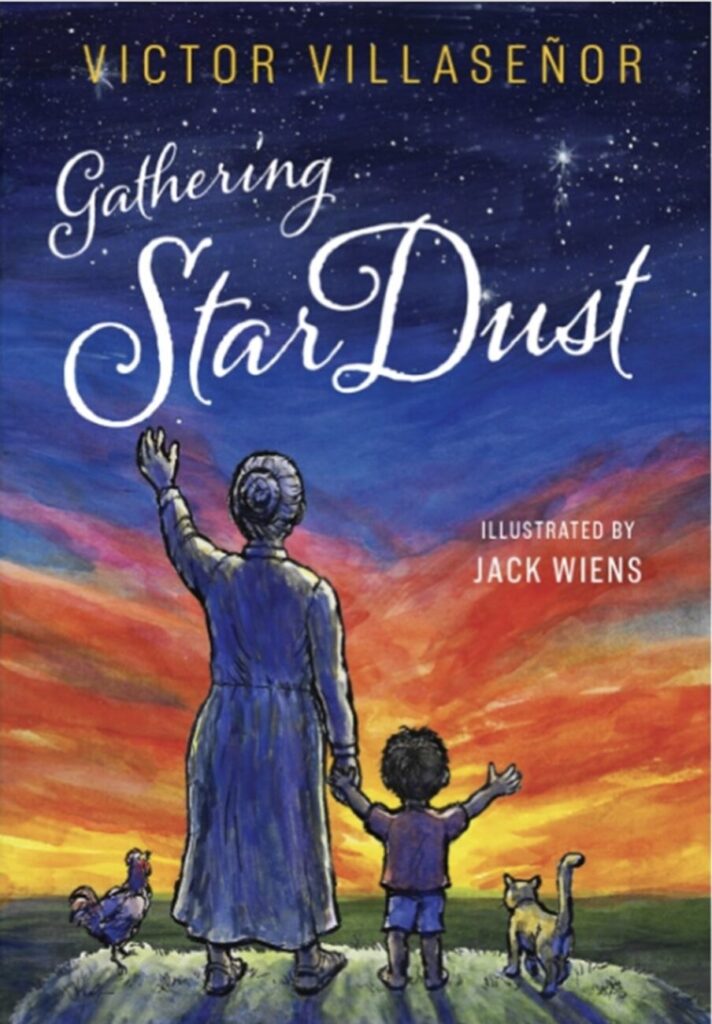
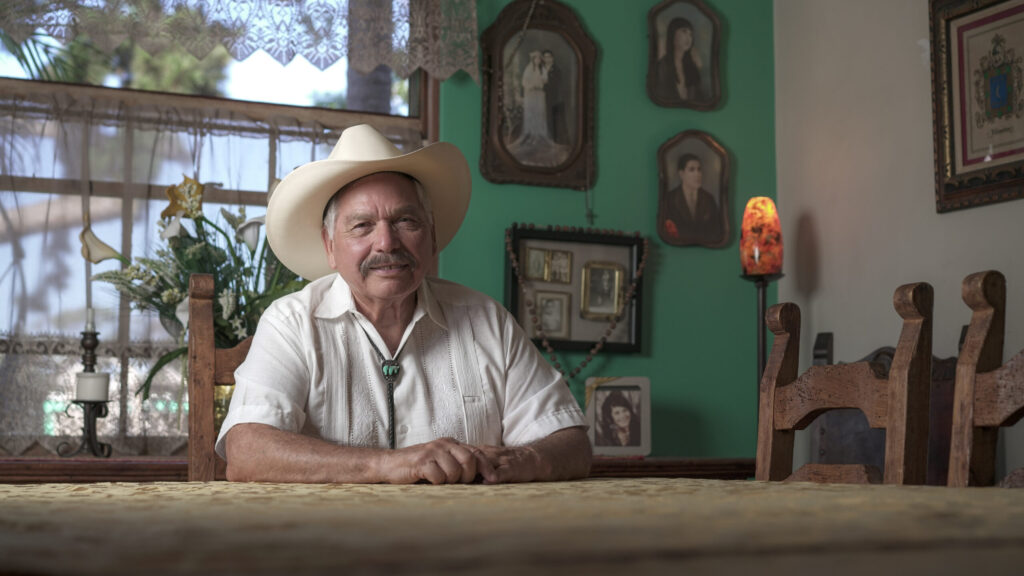
“This visceral experience becomes a turning point. Villaseñor, in his anguish, cries out to God and makes a heartfelt plea: if God helps him become a writer, he promises to dedicate his life to telling stories that uplift and heal. He doesn’t just ask for talent—he asks for purpose. He wants to transform his suffering into something meaningful, something that could help others feel less alone. This happened 65 years ago!”
We as a people need to feel connected—to earth, to community, to life and to spirit. Our stories create this connection and help us know we belong to this planet and this society, but we do so with our own ancestral DNA, customs, cooking, and songs. When we are lonely or isolated, Latino books help us see we are not alone; they comfort us, make us laugh, and make us cry because we have lives in common. They help us see the goodness, the happiness and magic of life through our own stories!
People tell me they feel that Rain of Gold is THEIR family’s story. That’s pretty impactful!
My hope is that people will understand from my writing that no matter how different we are, there is only one race, the Human Race! Only through realizing that “You are another me, and I am another you,” with neighbors, friends, and strangers, can we come to understand and love each other so that we can reach true harmony and peace in the world!
Maria Garcia, We Made San Diego
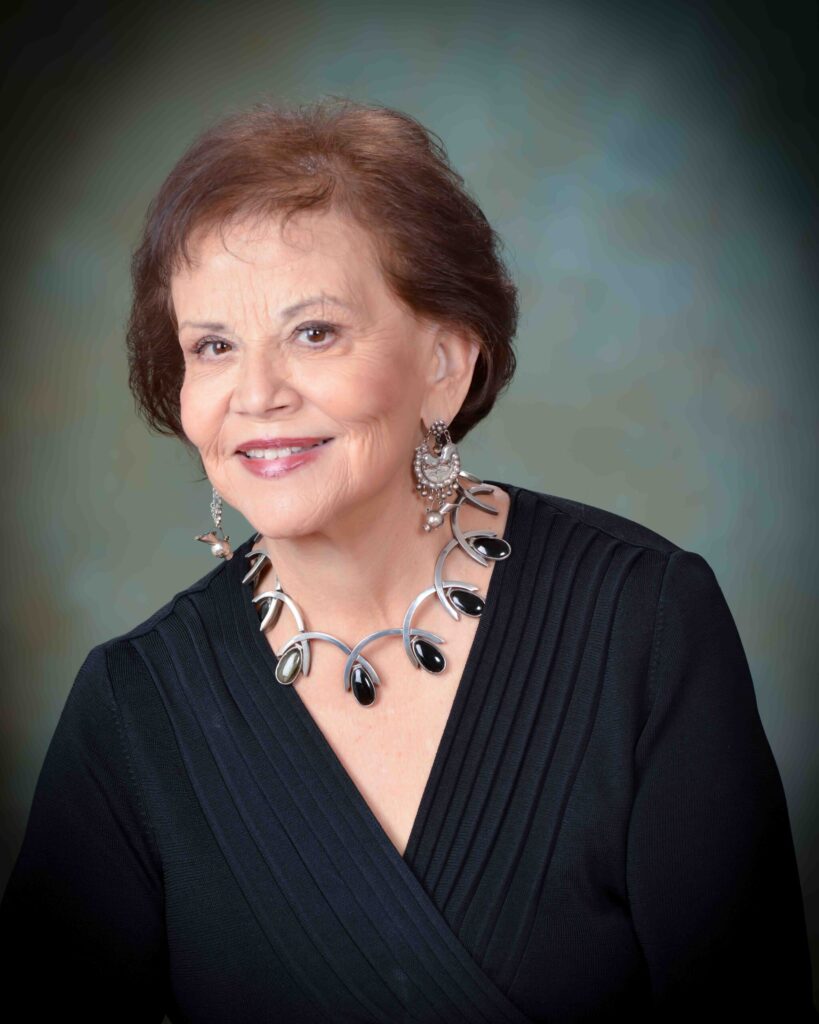
As a retired school administrator, I have seen firsthand how students react when they see people in a book who look like them. Sometimes, it was a simple smile when they saw a person who shared their appearance or experience. Other times, they would say things like, “That happened to my tía” or someone else they knew.
I have learned people want to understand the hurdles we Latinos went through to achieve success. I found Latinos showing the most interest, naturally, but I enjoyed other ethnic groups telling me, “I didn’t know Latinos had done that.” Especially sad was hearing kids say they did not know certain things about their tata or nana (grandfather or grandmother).
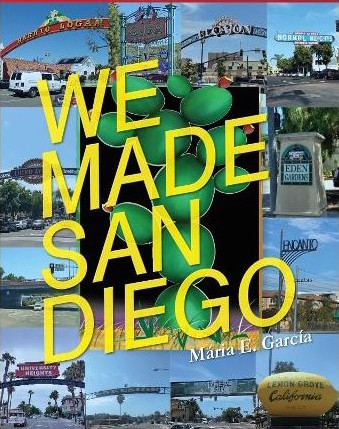
Why were stories hidden? The more people I interviewed, the more questions rose about why I had never learned about certain things or events before. With We Made San Diego, the door would be open to conversations about our contributions.
The second book I saw as opening doors, not only to preserve our history, but also to make others aware of the hurdles that so many of my people had to endure to reach the success they have achieved. I was confident these stories should be included so that everyone reading would realize that generations of Latinos had to go through painful moments to achieve what they have achieved.
Becky Krinsky, Recetas para la vida
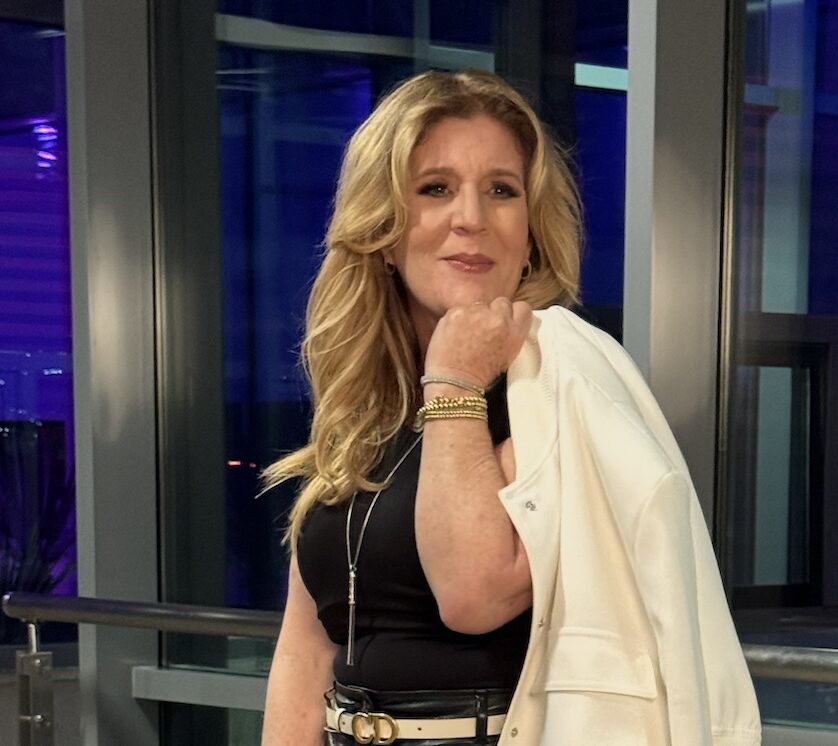
I never imagined I would one day become an author. My journey began with a simple invitation that changed everything—I was asked to speak at the largest conference honoring International Women’s Day at the Civic Center in Mexico City. The organizer casually requested, “Please bring your book.”
There was just one problem—I didn’t have a book. But I have always believed in saying yes to opportunities. So, with conviction, I replied, “Of course, I will bring my book.”
For years, I had been giving conferences and writing my weekly column Recetas para la Vida. With less than four months to deliver, I decided to turn my most beloved conference—How to Deal with Difficult People / Cómo Tratar con Gente Difícil—into a book. For three months, I poured my heart into the manuscript, revisiting my content, reading tirelessly, studying book formats, and imagining how I wanted my book to look and feel.
When I finished, my brother printed it in his press, my parents generously supported the costs, and my cousin connected me with a designer who brought my vision to life. In just one month, a book that didn’t exist became real.
The conference was a success—I took my book, sold many copies, and something inside me shifted forever.
I wrote Woman of Valor / Mujer Actual, Mujer de Valor for a Mother’s Day conference. Unlike before, there were no illusions of publishing deals—just the pure joy of writing, inspiring women, and celebrating our strength.
Years later, with a deeper sense of purpose, I chose to write again—not because I was asked, but because I had something burning inside me to share. I spent eight years creating a bilingual children’s book, You Were Born to Shine / Naciste para Brillar, filled with hand-painted illustrations and a simple yet profound message: every child has light within. This book is my gift to children, families, and our community, reminding us that even in a broken world, we were born to shine.
Books are more than words; they are testimonies of life. They capture the essence of cultures, voices, and histories that deserve to be remembered. Ultimately, my deepest wish is to inspire—to touch hearts, to open conversations that matter, and to remind our community, and especially our children, that no matter what we go through, we were all born to shine.
Rita Soza, Helen Miller Bailey
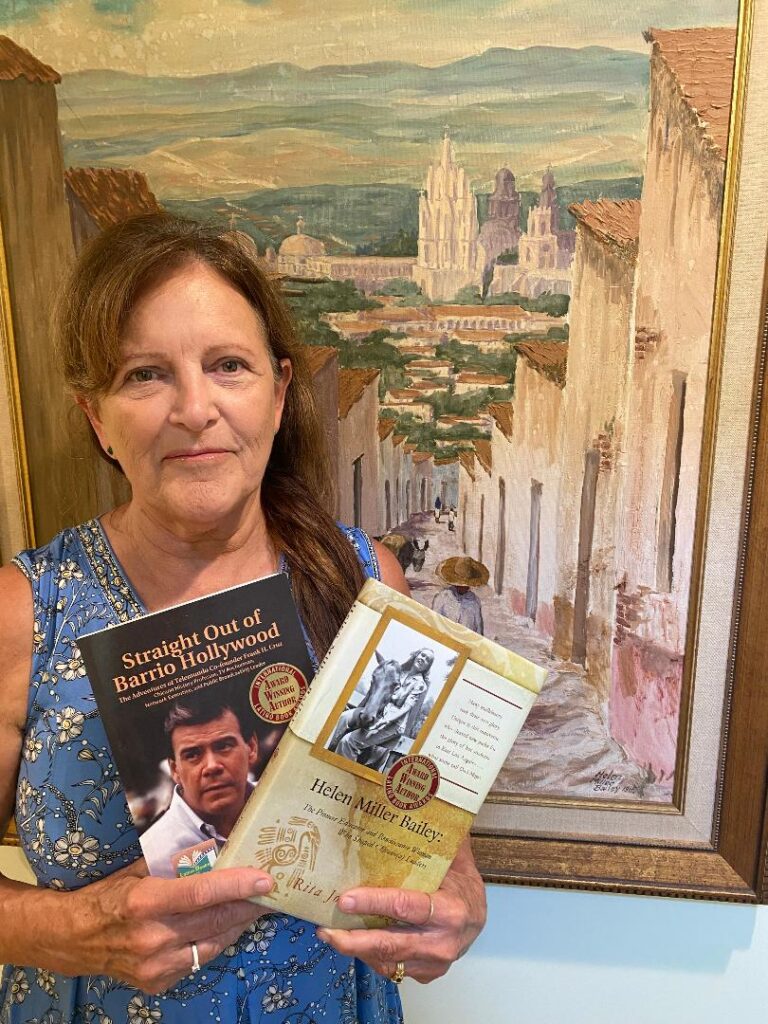
When I joined the faculty at MiraCosta College in 2005, I think I unconsciously conjured up the inspirational teaching style of my old professor Dr. Helen Miller Bailey to emulate. In doing so, I began to have a recurring notion that someone should write a book about her. I needed to know more about her. Even though I began that 10-year endeavor very timidly, in the end, not only was her amazing and consequential life revealed to me, but I became a writer.
Having a book mirrors one’s own image; it is a validation that says, “we are here, we are respected, we are valued.”
This spring I attended a Chicano Studies book festival at Mesa College in San Diego and something magical happened. The previous semester, a Chicano Studies professor used my tribute to Helen Miller Bailey as the textbook for his course. Attending the book festival were two students from that course. Each excitedly explained that my book had changed their life. The young man said, “I now understood why I am going to college—and it was NOT to make money; rather, I want to use education to inspire and support others.” The young woman said, “Mrs. Soza, because of your book, I now have a plan for my future. I’m going to get my master’s degree and then raise money to build schools in Oaxaca.” I remain humbled.
Sylvia Mendoza, The Book of Latina Women: 150 Vidas of Passion, Strength, and Success
I was a journalist by trade, earning my undergraduate degree from USC. I have written more than 1,000 articles in my professional life, but I wanted to tap into the creative side of writing. It was a journey because it was completely different from journalism, where we write short, concise, factual sentences. In fiction, you can let your imagination run wild.
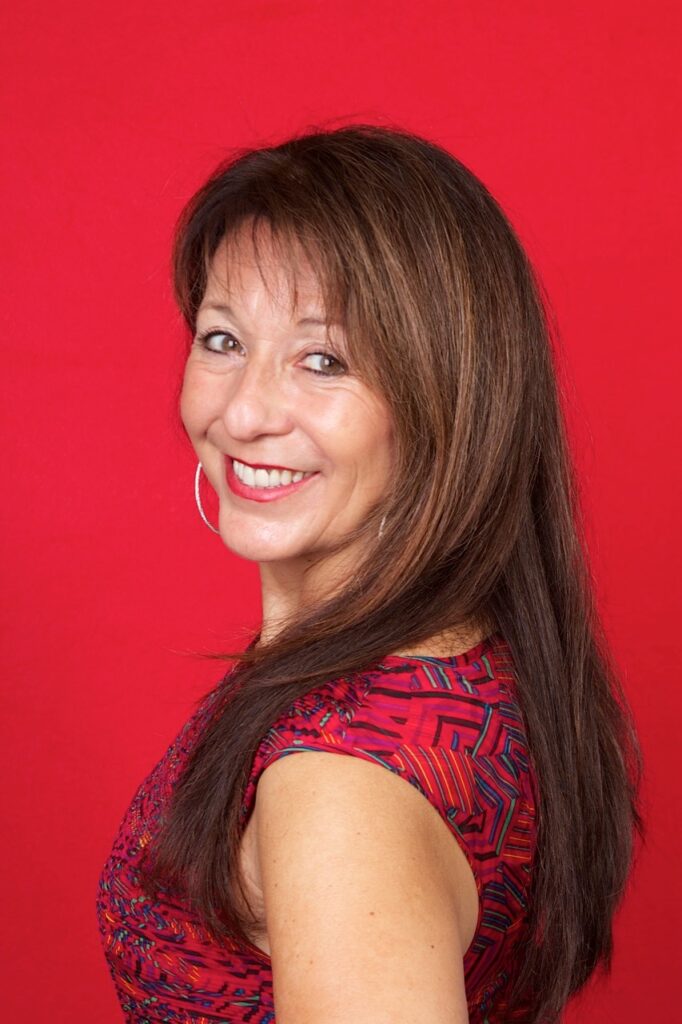
It was liberating when story ideas came to life, and I was able to add details and depth to character descriptions, scenes, and plot lines. For non-fiction, I was constantly inspired by the people I researched. I was challenged to identify my own purpose and higher calling—and that was writing.
When Latinos or anyone see themselves in stories and books, it can be life changing. This representation is vitally important because there is connection, appreciation, and celebration of what we know and what we need to feel seen and heard on so many levels. It makes us braver and stronger, able to visualize the reality we want, now and in the future. By reading and writing Latino-infused and inspired books, we can embrace our roots, culture, and individual experiences to lift each other into the light where we belong.
As I am still a working journalist, I believe my articles can educate others about social justice issues impacting us today. I can also celebrate inspiring people I get to interview. As for the books I’m currently writing, I dream that readers will dive into the stories and see themselves in the complex characters I create, the emotions they feel, the challenges they face, the relationships that keep them sane, and the way they find their strengths to protect the ones they love and save themselves.
Sonia Gutiérrez, Dreaming with Mariposas
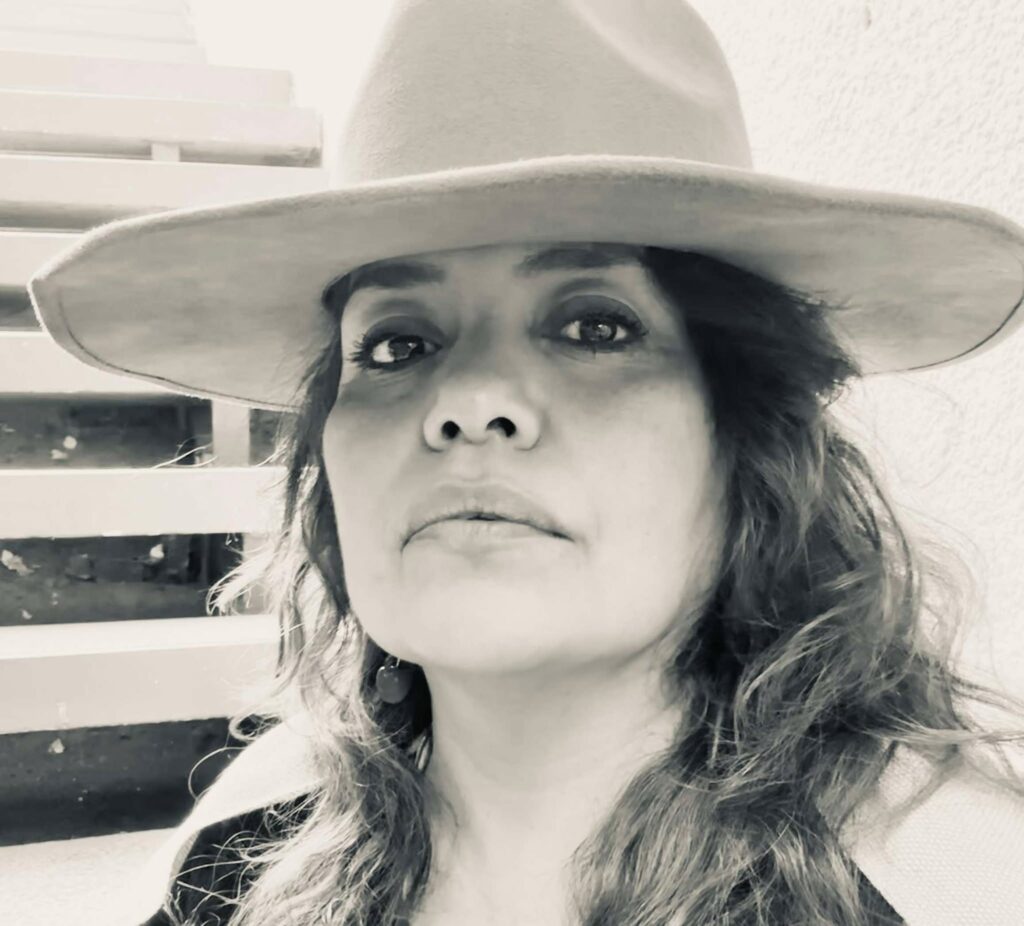
Toni Morrison, among other authors, inspired my novel, Dreaming with Mariposas (FlowerSong Press, 2020). In a Time interview, she reflects on her journey to writing The Bluest Eye: “If there’s a book you really want to read, but it hasn’t been written yet, then you must write it.” Morrison’s words resonated with me. After completing my undergraduate studies, I enrolled in Dr. Carlos von Son’s Literatura Chicana/o class at Cal State University San Marcos, where we explored Tomás Rivera and Sandra Cisneros. Something within me told me I, too, could write vignettes. I recognized two shared commonalities: we were poets and writers, and if they could write novels, so could I. To embark on this writing journey, I connected with the spirit world and reflected on the themes missing from Rivera and Cisneros’s Chicano/a classics. That’s when the urge to write cuentitos consumed me, eventually evolving into a novel.
I wanted to be a young author. Ha! At age 38, after parting ways with a small publishing press in San Diego, I self-published my first book, Spider Woman / La Mujer Araña (Olmeca Press, 2013). Now that I’m 50, I understand that a poet, writer, or author can publish at any age. I plan to continue writing books until I’m a viejita when I can no longer think and write in this lifetime.
In the 1990s, when I was attending San Marcos High School and Palomar Community College, I did not read books that depicted people who looked like me. As a poet and writer, I wanted teenagers to be proud of our heritage and the sacred food we have cherished for thousands and thousands of years. I wrote Dreaming with Mariposas to see my people and our struggles reflected in the literary canon. Readers must see themselves reflected, so they can be proud of their heritage. In Dreaming with Mariposas, I highlighted dishes rooted in the Indigenous Three Sisters foods: tamales, frijoles, and calabacitas that are humble foods that make us proud as Mexican/Chicanx people.
My writing allows people of all backgrounds to think critically. Through my work, I empower people to take pride in their identities, particularly Mexican Americans, Chicanos, and Latinos living in the United States. We must stand firm against injustice. I am committed to inspiring the next generation of poets and writers to dream and create their own narratives. With our books, we resist the erasure imposed by American hegemonic culture. If we write, we exist, and no one can erase us.

